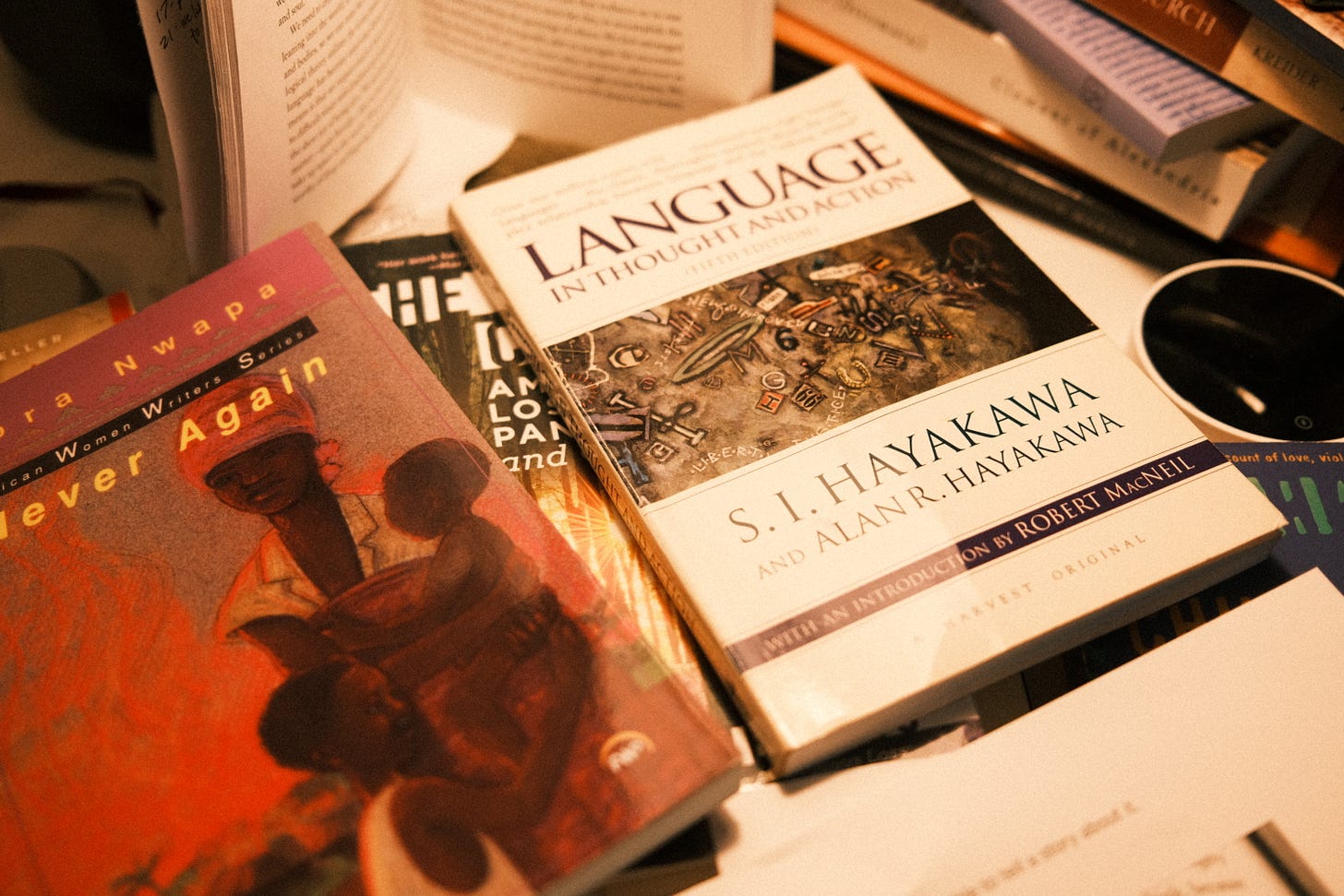I'm Not Okay
And Other First Phrases in Grief Fluency
Anger is the best hiding place for anybody seeking to conceal pain or anguish of spirit. – bell hooks
I'm okay!!
I'm okay!?
I'm okay.
At least, that's what I kept telling myself. All right. It’s January 2016. I’m eight months removed from starting my third church in 10 years. I'm nine months removed from burying brother.
But I'm okay.
January 2016, remember. I'm in my forest green 2003 Toyota Camry, turning right into the parking lot of Lenox Mall in Atlanta. I'm only there pit-stopping to take back a pair of Huraches to the Nike store (you know they run half a size small). I'm on the way back from leading chapel for the Texas A&M men's basketball team. I was friends with the coach then, and he asked me to come and talk to them about Grief, hope, and the stories that take us from one side to the other. Normally, I’d be upset at how long it takes to find a parking spot, but today was different. I didn’t mind waiting.
Why? Because I can’t keep the corners of my mouth straight. They keep floating up to my ears. Normally, I’m not this self-absorbed, but today…it’s different. I KILLED it with the team. They were laughing. Crying. They hugged me when I left and kept applauding out the door. Even I was impressed at how quickly I hurdled my Grief and began to help other people deal with their own.
I’m okay!
Or so I thought. A little parking lot skirmish would show me otherwise.
No sooner than the spot I was clearly next in line for becomes vacant, a group of kids swoop in and snatch it. Immediately, I go white-knuckled behind this beige steering wheel (which lets you a little bit into my state of mind. Do you know how hard it is for a Nigerian brother my complexion to go white-knuckled?) To say I was angry was an understatement.
I’m woo-saa’ing for a second and gently tap my horn while mouthing to the kids that the spot was mine.
I wish you could have seen the genuine remorse in their eyes. Incredibly apologetic, they mouthed back,
"Don't trip; we just planned on pulling into the spot so we could back out and go the other way."
So I relax. The melanin feels welcome to return to my knuckles.
And I wait.
And I wait.
And I wait.
And the car doesn't move.
As I start to inch up and look out of my right window, I see this group of kids (this is the best word that I can use to describe how they slithered out the car) scurrying out the backseat of the vehicle. Laughing.
AT ME?!
Mind you, I’m still a pastor at the time.
I don’t know what happened to my composure. I mean, I just had it a minute ago, but now I can’t find it. The melanin rushes out of my knuckles quicker than when Black folks notice a group of people running away from, well,…anything.
So I rolled down my right window.
And I look and I just aim my eyeballs right at these kids.
And…..
And I cuss ‘em out. I mean cuss cuss. The cussing wasn't even the most surprising thing. The most surprising thing was the fluency that I retained. Feel me? I took four years of Spanish in high school and I lost it quick. I have trouble finding a baño whenever I’m in Central or South America (or certain parts of Texas). And even though I hadn't cussed anybody out in 15 years, I was stringing together those phrases like a macaroni necklace. It was effortless.
What makes this whole scene worse is now that I'm done with my tantrum, a space opens next to the one I lost.
When I came to my senses, I realized I hadn't moved past my grief at all. My emotional room wasn't cleaned. I just really good at packing my grief (and everything it touched) in the closet. My Grief wasn’t under control; it was merely under the surface.
Instantly, shame nestles my shoulders with all the comfort you'd expect from a wet blanket in a Minneapolis winter.
This isn't me. Something is off. Something big.
I’m NOT OKAY
I pause for a bit and call my wife and two of my best friends. And I unload. I tell them what went down, and I whisper the words,
“you know. I’m NOT okay!”
I expected them to scold me. But instead, they were so gentle with me. Their kind words reached up and massaged all the tension out my tight shoulders. And they all so gently replied,
“WE KNOW you’re not okay. We’ve just been waiting for YOU to realize it.”
And those words made me realize the only person rushing to finish. Nobody, absolutely no one else expected me to finish my journey that quick. That was the first thing that helped me to slow down.
So then, a month later, my church granted me a sabbatical. Without having to preach or counsel anyone, I could no longer numb my broken heart with the anesthesia that comes from helping people put theirs back together.
I had spent the past year asking myself these questions every day.
Would today be the day that I want to do something other than sit in the dark?
Would today be the day when somebody asked me how I was, and I’d be able to say fine without fear of nose going Pinnochio right in front of their eyes?
Would today be the first day that I didn't try to find a way to sneak Sam into a conversation to remind people that I'm still sad? Or to make sure that I didn't forget him?
And I realized nothing was wrong with my questions, but everything was wrong with what the answers did to me. They drove me to despair and despondency, feeling like I was a failure because I hadn't reached a finish line. And let me tell you, as I approach the ninth anniversary of my brother’s passing, I still haven't found a finish line (much less reached one) to this thing called Grief. Because…. there isn’t one.
One of the most important lessons that I learned throughout all of this is
Grief doesn’t have an expiration date.
Grief doesn't have an expiration date
Grief is a non-perishable food item. Grief is that can of beans that’s been sitting at the back of your Granny’s pantry since WWII. Songs, memories, or parking lot skirmishes tend to unexpectedly pop the top off the Grief, and it smells fresh. Your body responds to the loss like it happened this morning.
Grief is much worse than you think. We live in a world that will tell you that time heals all wounds; we’ve determined that that in fact is a lie!
Do you know what comes after Grief? More Grief. Life becomes incredibly complicated. Especially when we’re running towards an imaginary finish line. But if we start to embrace the fact that maybe there isn’t a finish, we change how we engage with Grief.
Maybe Grief isn't an event that we hurdle past. Maybe our deepest losses are an invitation into a convo with Grief that we’ll have for the rest of our lives. And here's the opening words of that conversation. Are you ready?
What Grief tells us, what Grief constantly reminds us of, is this one truth.
Everything in this world that you love, you WILL lose.
It’s like gravity. It won’t be argued with.
That's not meant to make you sad. It's meant to make you sober.
It's meant to make you a better more present version of yourself.
It's meant to remind you that the most valuable moments in life are as fragile as they are precious. Whenever I’m ignoring my daughter because my nose is buried in your phone, Grief slithers up my spine, taps me on the shoulder, and whispers into my ears,
Everything you love, you WILL lose. So instead of burying your nose in your phone, nestle it in your daughter. She won’t be this age, or in this house, or in this world, forever. And if you don’t get that blood pressure under control, you won’t be either.
Maybe it's helpful for us not to think of Grief as a journey with stages. Journeys start and have a definite end. Grief doesn’t end.
Maybe it's more helpful to think of Grief as a language.
Grief is a Language
The goal of language isn’t finishing. It’s fluency.
If humanity were a country, Grief would be the official language. Even though Grief is the official language, it's nobody's native tongue. We all have to learn it. Don’t believe me? Compare the sparse attendance at your next family reunion with the near-perfect attendance every time you have to bury someone. It's humanity’s official language. Grief unites us.
However, no one is a native Grief Speaker. Take Nigeria for example. It’s a country of 200 million people comprised of hundreds of native dialects and tribes. Do you know what the official language of Nigeria is? English. A learned language that unites people. If you're going to be connected across that landscape, that's the language that you have to learn. Grief is the same; we must learn how to speak it.
And I want y'all to know this. The best way to learn a language is by immersion. It's not by sitting in rows. It's not by Duolingo. It's by immersing yourself in film and conversation and stories and substacks and music and being in it to the point where you learn how to speak it.
Fluency Comes From Mastering Dialects
Every language has multiple dialects. When it comes to Grief, there’s at least two.
Tangible Grief & Ambiguous Grief.
People know how to speak tangible Grief well. When someone you love dies, their body is dropped into the ground. Once the tears begin sprinting down your cheek chasing the buried body, people can connect the dots. You’re surrounded with hugs, handshakes, bouquets of “sorry for loss,” and casseroles (if that’s your sort of thing). You have multiple hands to help you uphold that Grief.
The other dialect most people are unfamiliar with is ambiguous Grief. This is different. Ambiguous loss is the death of a dream. The death of a relationship. The death of a friendship. The diagnosis of a parent with dementia, where even though they're alive, you talk about them in the past tense.
These are all deaths with no funerals. Funerals with no caskets. And when your body physiologically grieves IN THE SAME WAY, and those same tears of loss start sprinting down your cheeks….people are puzzled. They have no fallen body to connect the tears to. So instead of words of comfort, you're pelted with questions at best (why are you sad?) or critiques at worst (boy, stop all that crying, it ain’t like nobody died). This Grief is a weight that you have to carry by yourself.
Worse, these ambiguous griefs usually come as a delayed package deal with the tangible ones. They often don’t appear until after time, and forgetfulness erodes the rock of support that was your initial grief community.
Very few are fluent. So ambiguous loss is a weight we’re forced to carry all by ourselves. (And sometimes we don’t even have ourselves to help carry the weight because we’ve decided what to do with our sadness before discovering why it’s there). Over the past few years, I’ve found several people who are as fluent in Grief as I’ve ever experienced. And I’ve found them all here. Nova, Robert, & Josefina are three that immediately come to mind.
Fluency Begins with Mastering Phrases
The goal of today (whatever day you read this) is for us to start the journey in fluency. Fluency always begins with mastering one phrase.
Como Estas?
Kedu?
Bonjour!
If you follow anything I do, there’s one phrase that you’ll constantly hear, wear, read, or see from me. It’s the best place to begin once you realize there’s no end.
Tragedy doesn’t ruin anyone. Hopelessness does.
I hope that as time passes and Grief hides away, only to resurface clothed in an “anger costume״ during your next parking lot skirmish, you’re surprised by a more refreshing fluency than I was.
I hope these words help you hold on to hope today.
Peace,
John O
P.S. What phrases have been most helpful to you in your journey towards Grief Fluency?








During this past football season, my dolphins looked very promising. As I was watching one game, the Dolphins were putting a beating on the Broncos and scored 70. My first response was to call my father, which is where I but I recognized just as I was getting ready to dial this number that he would not answer. This was more than a year and a half since he’s been gone. I’m just started grieving my father.
Losing my wife, dad, and grandmother within a nine month span didn’t give me a chance to really breath. It’s like doing a timed workout and the clock is at 5 seconds left and all of a sudden it resets to 5 mins. I’m emotionally cooked, physically drained but I gotta push thru it because there are people depending on me.
Six months after I tragically lose my wife, I find myself eulogizing my dad, who two months earlier was diagnosed with terminal stage 4 prostate cancer. The craziest part of all is the fact that after I finished preaching his eulogy and we concluded the service, I had preachers asking me for dates to preach at their church?!
I politely decline their invitations, but in my head I’m thinking, “What the hell are you thinking about? I just eulogize my father six months after my wife just passed away, and you asking me about preaching dates?”
One, this raised my awareness to how tone deaf people are to people who are grieving.
Secondly, I recognized the work of the Holy Spirit in my life to have the strength stand up declare His goodness while feeling like my world is falling apart and the reality of taking care of not only my household,
I found it interesting that I really didn’t want to do my father’s eulogy, but literally had to talk myself out of doing my wife’s eulogy. The biggest reason is didn’t want to present this false narrative that I WAS OK and clearly I was not OK.
These words John. 🥹
As I continue to live with grief, I am still learning to be okay with it. Some days I succeed, others not so much.
When I lost my second child, my mom said “dale tiempo al tiempo”
All I wanted to do was feel better. I didn’t want to be sad. I didn’t want to fall in this state of depression again. I didn’t want to hold hands with grief. I wanted to reach that place where I accepted it and moved forward. Yet her words were to give time, time. Give healing time. Give grief time. Give yourself time. And really for me it was an invitation of honoring grief and giving myself grace and gentleness. Being honest that I wasn’t and still have moments where I’m not okay, but choosing to be present anyway.